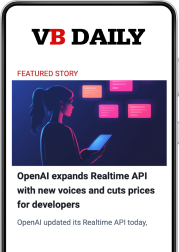As AI continues to gain new competencies, traditional junior coding roles are quickly becoming obsolete. Tasks typically performed by junior developers — like repetitive scripting, HTML layout, or simple DevOps setups — are now efficiently managed by AI tools such as ChatGPT, GitHub Copilot, and Amazon CodeWhisperer.
This shift is more than just about speed and efficiency; it represents a significant structural change. What does this mean for entry-level developers and the software industry as a whole?
For years, software engineering had a relatively straightforward path: starting with basics, creating landing pages, writing test cases, and fixing minor bugs. As competence increased, one could transition to architectural thinking and product ownership.
However, AI is transforming the foundational levels of the industry by handling most junior tasks autonomously. Newcomers are now expected to perform duties that previously required years of experience. It’s no longer just about writing code; it’s about understanding systems, problem structuring, and collaborating with AI like a team member. Although challenging, there is a path forward, starting with rethinking how we learn.
For beginners, it’s crucial to avoid over-relying on AI to complete work. Tempting as it may be, bypassing manual practice prevents the development of a deep understanding of software. Such understanding is essential for growth into roles where one can lead, architect, and guide AI instead of being replaced by it.
In the future, the most valuable tech professionals won’t be those who write perfect code but those who understand what to build, why it’s important, and how to wield AI effectively. Thus, tomorrow’s coder resembles a product manager with technical expertise.
Furthermore, it’s not just individuals who need to adapt — entire teams must transform. Where roles like front-end developer, back-end specialist, DevOps engineer, and QA tester were once distinct, we’ll soon see individual developers managing entire pipelines with AI’s help.
AI-augmented developers will replace larger teams once needed to advance projects. While this improves efficiency through reduced communication times and faster results, it doesn’t mean teams will vanish entirely. Instead, the focus of collaboration will shift toward strategic decisions, product alignment, and the responsible use of AI tools. Human input will emphasize direction over implementation.
Looking ahead, the concept of a “developer” is likely to evolve into a hybrid role involving development, design, and product thinking. While technical fluency remains important, understanding product concepts, user needs, and managing AI output will be crucial. The focus will be on system design and strategic vision.
For some, this transformation may seem daunting, but for others, it presents new opportunities. Creative individuals with problem-solving skills will find immense potential. The landscape is undeniably changing, but it may favor those willing to adapt. The decline of junior coding is not the end of learning; rather, it signals a need to reassess the skills we cultivate, how we organize teams, and what makes an exceptional developer.
Rather than mourning the loss of fundamental tasks, the industry should emphasize developing skills that can’t yet be automated. This means embracing a hybrid approach and learning to partner with AI rather than compete with it.
Roman Eloshvili is the founder of ComplyControl.

